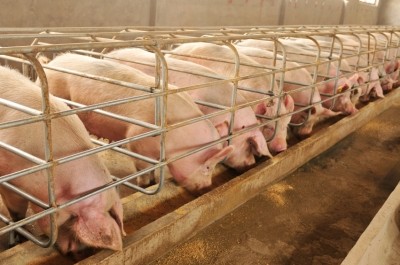ISO looks to standardize feed processing machinery

The world's soaring population and growing demand for animal protein products has spurred enormous development in feed machinery manufacturing and the feed industry in general. But with policies and technologies differing widely across countries, there is a substantial imbalance in the field, said the International Organization for Standardization (ISO).
Qingxin Zhou, secretary of the newly created ISO technical committee for feed machinery standard development, told FeedNavigator: “There are over 30,000 feed processing mills in the world and more than 100 countries and regions are involved in the import and export business of feed machinery every year. So it is natural that international standards are required to coordinate related technological matters.”
The ISO said inconsistent requirements have hindered international trading of feed machinery and there is urgent demand for global standards to coordinate business across borders.
China has been leading the push for international feed machinery standards. Last year, that country put in an official request to the ISO on the matter and that has finally been accepted, said Zhou.
She said the ISO technical committee has to complete preliminary research reports and put out a call for global contributors before starting in earnest on the work to develop the international standards.
The commitee hopes to attract multiple industry stakeholders and experts from different countries and feed sectors including feed machinery manufacturers and end users.
But the new standards are unlikely to be formalized before 2019, said Zhou.
Potential hazards
The ISO said as feed machinery and its specific component parts are numerous and diverse, there can be disagreement among countries over terminology and graphical symbols used. These variations have created barriers to international trade, it added.
According to the organization: “Feed mills all over the world have suffered innumerable accidents due to the lack of proper safety measures for feed machinery, including safety design, safety protection design, dust explosion prevention, electrical systems, and the safety requirements involved in layout, installation and the manufacturing of equipment.
Dust explosions in feed mills, for example, are a worldwide problem.
In feed processing machinery, many factors can affect feed hygiene, the environment and operators’ well-being, so concerted solutions need to be found. The health of humans and animals, and the security of people and property, are the top priority of standardization, underpinned of course by a robust terminology base.”
The ISO said three groups have been created within ISO/TC 293 to work specifically on feed machinery terminology, safety and hygiene with the following aims:
- Develop international standards on terminology and graphical symbols, safety, hygiene and test methods for technical requirements, as well as the performance of single equipment and feed production lines that can impact on feed quality, production efficiency and energy consumption.
- Facilitate international exchanges on technical issues, promote international trade, minimize security risks in the feed production process, as well as the risks inherent to feed hygiene, workplace sanitation and environmental pollution.
- Propose the best solutions for the security and hygiene of feed machinery.
- Supply the technical basis for conformity assessment and provide an impartial technological foundation for orders, project inspections and acceptance of complex production lines.
The organization also hopes, at a later stage, to focus on the intelligence of feed processing lines and service networks.







